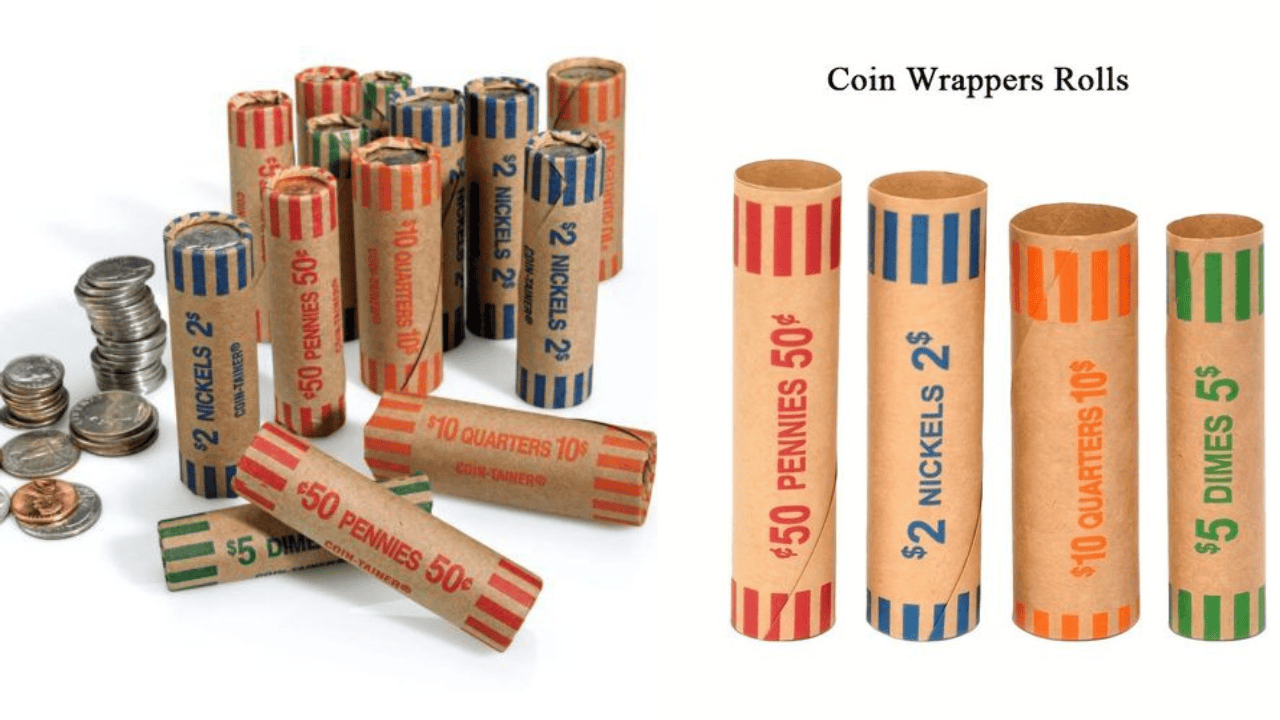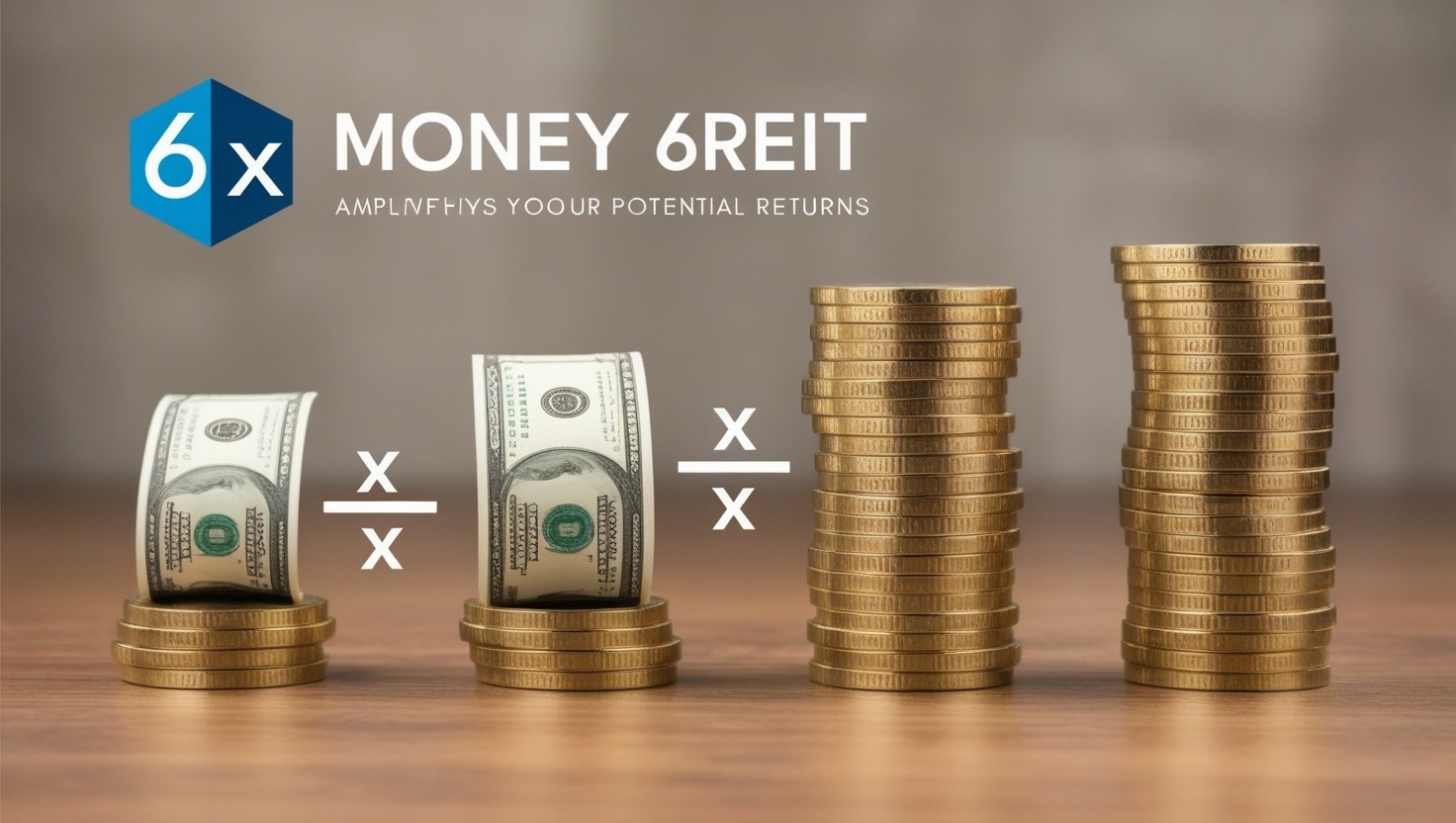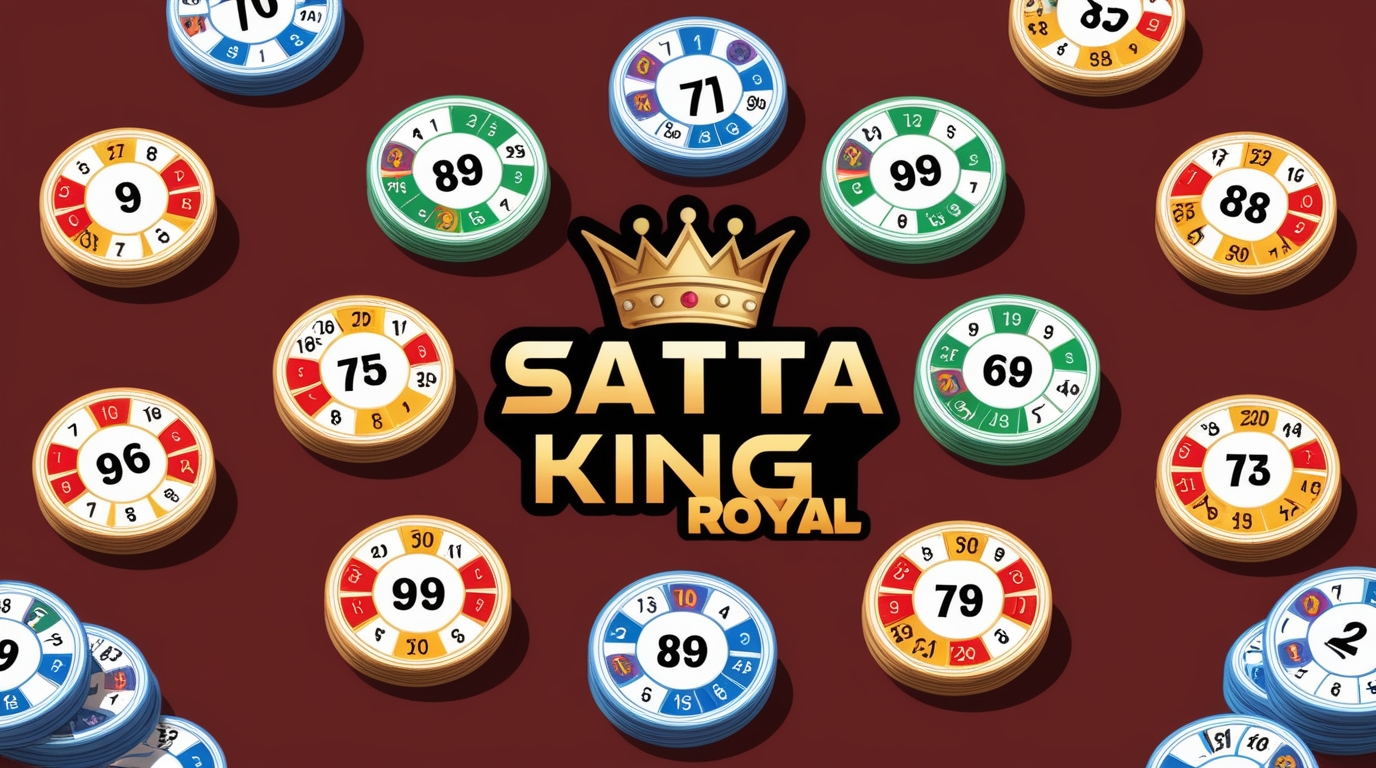If you’re someone who collects loose change or has a habit of keeping coins in jars, you’ve likely wondered what to do with all that metal currency. Coin wrappers are the perfect solution! These handy paper or plastic tubes help you organize your coins for deposits, exchanges, or storage. Banks and retail businesses often require coins to be rolled in wrappers before accepting them, making coin wrappers not only useful but essential.
This article covers everything you need to know about coin wrappers: their purpose, types, how to use them efficiently, and where to buy them. Whether you need to organize coins for a business or a personal deposit, this guide will help you simplify the process.
What Are Coin Wrappers?
Coin wrappers are tubular containers made of paper or plastic, designed to hold a specific quantity of coins. They are used to roll coins neatly and according to their denomination. Each wrapper is color-coded based on the coin type it holds, following standard U.S. coin denominations. Coin wrappers ensure your coins are easy to count, transport, and deposit at banks or exchange kiosks.
Most wrappers are pre-labeled with a denomination value, such as “pennies” or “quarters,” and indicate the total amount the roll should contain when filled. Banks and financial institutions often require coins to be pre-rolled in these wrappers to save time and ensure accuracy during deposits.
Types of Coin Wrappers
Coin wrappers come in different materials and designs to suit various needs. Here are the most common types:
Flat Paper Coin Wrappers
- These come flattened and need to be manually opened.
- They are made of kraft paper, which is durable and recyclable.
- Ideal for those who need to wrap coins occasionally.
Preformed Paper Coin Wrappers
- Pre-shaped into tubes, making them easier to fill.
- Designed to hold a fixed amount of a specific coin denomination.
- Popular for high-volume coin rolling, such as in retail businesses.
Plastic Coin Tubes
- Reusable and more durable than paper wrappers.
- Useful for storing coins over a long period.
- Transparent design makes it easy to see the coins inside.
Coin Denominations and Wrapper Color Codes
In the U.S., coin wrappers are color-coded to correspond with different coin denominations. Below is a table showing the most common wrappers and the standard values for filled rolls:
| Coin Type | Wrapper Color | Coins per Roll | Value per Roll |
|---|---|---|---|
| Pennies | Red | 50 | $0.50 |
| Nickels | Blue | 40 | $2.00 |
| Dimes | Green | 50 | $5.00 |
| Quarters | Orange | 40 | $10.00 |
| Half-Dollars | Yellow | 20 | $10.00 |
| Dollar Coins | Gray | 25 | $25.00 |
The standardized color codes help banks and retailers quickly identify the value of the rolled coins.
How to Use Coin Wrappers
Rolling your coins with wrappers is a straightforward process. Here’s a step-by-step guide to make sure your coins are properly rolled:
- Sort Your Coins by Denomination: Start by separating your coins into pennies, nickels, dimes, and so on.
- Count the Coins: Make sure you have the exact number required for a full roll. For example, you need 50 pennies to fill one penny wrapper.
- Open the Wrapper: If you’re using a flat paper wrapper, open it by squeezing the edges. Preformed wrappers are already open.
- Fill the Wrapper: Place the coins inside the tube until it’s full. Make sure the coins are neatly aligned.
- Seal the Wrapper: Fold down the edges of a paper wrapper or secure a plastic tube with its cap, if applicable.
- Label (if required): Some banks may require your name or account number on the wrapper for deposits.
Benefits of Using Coin Wrappers
Using coin wrappers offers several advantages, both for personal use and businesses.
- Organization: Keep your loose change organized and avoid the clutter of scattered coins.
- Convenience: Pre-wrapped coins speed up transactions at banks and vending machines.
- Easy Counting: Coin rolls ensure you know exactly how much money you have without having to recount.
- Required for Bank Deposits: Most banks won’t accept large quantities of coins unless they are properly rolled.
- Storage: Wrapping coins prevents them from tarnishing and keeps them safe over time.
Where to Buy Coin Wrappers
Coin wrappers are widely available and can be purchased both online and in stores. Here are some of the best places to buy them:
- Office Supply Stores: Stores like Staples and Office Depot offer coin wrappers in bulk.
- Banks: Some banks provide free coin wrappers to account holders upon request.
- Online Retailers: Websites like Amazon and eBay offer a wide selection of paper and plastic coin wrappers.
- Supermarkets: Some grocery stores carry small packs of coin wrappers near the office supplies section.
- Dollar Stores: You can find affordable coin wrappers in dollar stores, especially preformed types.
How Coin Wrappers Benefit Businesses
For businesses, particularly those handling a large volume of cash transactions, coin wrappers offer a quick way to manage coins. Retailers, vending machine operators, and laundromats often use coin wrappers to streamline deposits and reduce time spent counting cash. Banks may charge fees for counting loose coins, so pre-wrapped coins help businesses avoid those extra costs.
Businesses can also invest in coin counters that automatically sort and roll coins into wrappers, saving time and ensuring accuracy.
Recycling and Eco-Friendly Use of Coin Wrappers
Paper coin wrapers are recyclable, making them an eco-friendly way to handle coins. You can dispose of them along with regular paper recycling once they’ve served their purpose. Some businesses also encourage reusing plastic coin tubes, further reducing waste.
Coin Wrappers: A Practical Solution for Cash Handling
Using coin wrappers simplifies the process of organizing, counting, and depositing coins. Whether you’re an individual looking to cash in spare change or a business managing daily cash flow, coin wrapers make life easier. With their simple design, affordability, and efficiency, they remain a go-to tool for anyone dealing with coins regularly.
FAQs
What happens if I don’t have enough coins to fill a wrapper?
Banks usually prefer full rolls, but some may accept partial rolls as long as they are labeled correctly.
Can I use homemade wrappers for my coins?
Most banks require standard wrappers that meet their color and size specifications for easy counting.
Do all banks offer free coin wrappers?
Some banks provide wrappers for free to their customers, while others may charge a small fee.
Can I deposit rolled coins at any bank?
Many banks accept rolled coins, but some require an account with them. Check with your bank first.
Are plastic coin wrapers better than paper?
Plastic wrappers are more durable and reusable, but paper wrappers are more eco-friendly and widely accepted.
What if the coin roll breaks during deposit?
If a roll breaks, the bank will likely need to count the coins manually, so secure the wrapper tightly to avoid issues.
Conclusion
Coin wrappers are essential tools for anyone dealing with loose change, whether at home or in a business. They offer a practical way to organize, store, and deposit coins while saving time and ensuring accuracy. With various types and sizes available, choosing the right wrapper for your needs is easy. So the next time your jar of coins fills up, grab some coin wrapers and enjoy the satisfaction of neat, organized rolls.











